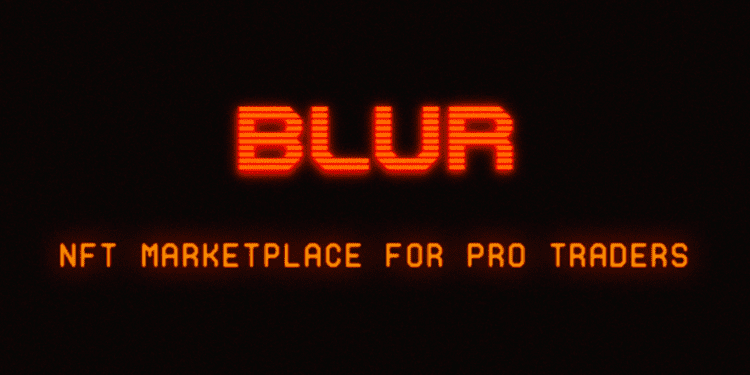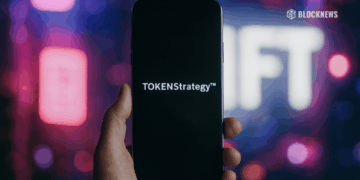Over the past few weeks, the debate of honoring creator royalties or making them optional has been a hot topic for NFT collectors and creators.
It began with a controversial trend from X2Y2, who came under fire for employing the “tip jar” royalties system that gave buyers a choice to pay or not pay creator royalties. While the number of buyers who chose to continue was at 75% in September, it quickly dropped to 18% at the end of last month.
Major marketplaces like MagicEden also came fire for choosing to devalue the importance of creator royalties, following a market trend that has seen more collectors flocking to platforms with optional royalties.
Zero Marketplace Fees For Blur
In contrast to the present royalties mechanism on many platforms, Blur has announced that it will continue to enforce royalties on permissioned NFTs, incentivizing royalties on all NFTs while taking 0% marketplace fees.
Blur is a new NFT marketplace on Ethereum, bankrolled by influential investors in the NFT industries, including Paradigm, 6529, Cozomo Medici, dhof, Bharat Krymo, Zeneca, OSF, and MoonOverlord.
Based on a recent AMA, the CEO of Blur explained that the platform is not focused on revenue growth for the present but on market expansion. Once sufficient market expansion has been achieved, the community will also have a say in how operations change.
In a Twitter thread, the platform pointed at the recent decision of OpenSea to turn off royalties on new collections that don’t block optional royalty marketplaces.
Blur was openly critical of OpenSea’s handling of royalties, stating that the platform’s implementation would give them complete access to which addresses can transfer NFTs, a move that favors centralization.
“If it gains adoption, then NFTs will shift from open, decentralized assets to permissioned assets ruled by OpenSea. This introduces significant centralization and regulatory risk to NFTs,” they said.
“The entire industry saw the importance of decentralization in the wake of last week’s events. If you are a collection creator, we recommend using your blocklist so that you fully control yourself.”
They added that while the platform wholly believed in the future of open, decentralized NFTs as durable assets, it would not take a stance on which NFTs to support or ban.
“Blur will enforce royalties on collections that enable listing on Blur and block zero royalty marketplaces. This rule will not apply to collections that don’t block zero royalty marketplaces or have a lot of volume on dynamic trading pools.”
Through labels, collectors will be aware of NFT collections with transfer restrictions, so they understand what they are buying into. The ultimate idea is to support incentives for open and decentralized NFTs and allow the listing of NFTs with optional royalties.
Blur gave instructions on how creators can enforce and earn royalties on both Opensea and Blur using Blur’s DefaultOperatorFilterer.
Not everyone seemed to agree with Blur’s updated royalties, though, as NFT Twitter users pointed out that the marketplace had more trades without royalties than any other platform.
“With the huge amount of market share that Blur is gaining, I’m shocked to see no one upset about them not honoring royalties for EXISTING collections,” Jeff Nicholas, host at RugRadio, tweeted.
“Especially when the entire space was incredibly upset at even the thought of OpenSea not honoring them.”
OpenSea’s Controversial System of Honoring Creator’s Royalties
Earlier this month, OpenSea- the leading Ethereum NFT marketplace, showed its hand with a “thoughtful and principled approach” to NFT royalties.
As explained in a Twitter thread, the approach would be a tool that would let creators enforce fees on-chain for “new collections.”
OpenSea’s new enforcement system provides code for Ethereum NFT creators to insert into their newly-launched NFT intelligent contracts. However, the code creates a blocklist that blocks the NFTs from being listed or traded on optional or zero royalties marketplaces.
The problem NFT users have with this system is that the marketplace blocked are direct competitors of OpenSea, like Blur. X2Y2 and SudoSwap. Others see it as a play to monopolize the NFT industry.
“Opensea royalties are completely off-chain. They say, “if you block our zero-royalty competitors in your contract, we’ll turn on royalties for you in our centralized system,” Angharad “Harri” Thomas, Director of Product at PROOF, tweeted.
“OpenSea is losing market share to other marketplaces that exercise creator royalties. So, this solution is a convenient value proposition. It blocks their competitors AND ensures that artists on their platform get paid on secondary sales,” Co-Founder of The Hundreds, Family Style, Bobby Kim added.














